
John Taylor was the 51st Governor of South Carolina from 1826 to 1828.
Charles Kinsey was an American businessman and politician who served two terms as a U.S. Representative from New Jersey from 1817 to 1819, then again from 1820 to 1821.

William Pennington was an American politician and lawyer. He was the 13th governor of New Jersey from 1837 to 1843. He served one term in the United States House of Representatives, during which he served as Speaker of the House from 1860 to 1861.

The United States District Court for the District of New Jersey is a federal court in the Third Circuit.
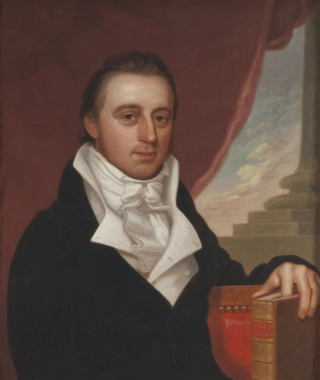
Nicholas Van Dyke was an American lawyer and politician from New Castle, Delaware. He was a member of the Federalist Party, who served in the Delaware General Assembly, as Attorney General of Delaware, as U.S. Representative from Delaware, and as U.S. senator from Delaware.

The 1826–27 United States House of Representatives elections were held on various dates in various states between July 3, 1826, and August 30, 1827. Each state set its own date for its elections to the House of Representatives before the first session of the 20th United States Congress convened on December 3, 1827. They occurred during John Quincy Adams's presidency. Elections were held for all 213 seats, representing 24 states.
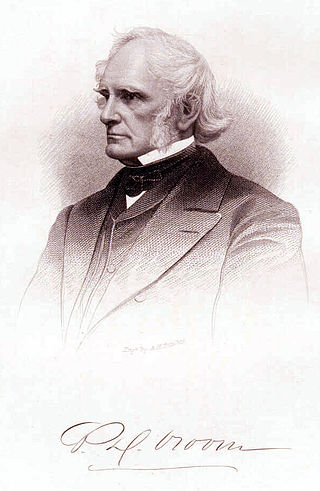
Peter Dumont Vroom, an American Democratic Party politician, served as the ninth governor of New Jersey and as a member of the United States House of Representatives for a single term, from 1839 to 1841.
Events from the year 1829 in the United States.

Franklin Davenport was a Federalist Party United States Senator and US Representative from New Jersey.
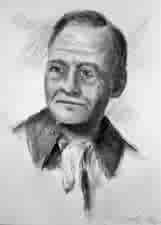
Ephraim Bateman represented New Jersey in the United States Senate from 1826 to 1829 and in the United States House of Representatives from 1815 to 1823.
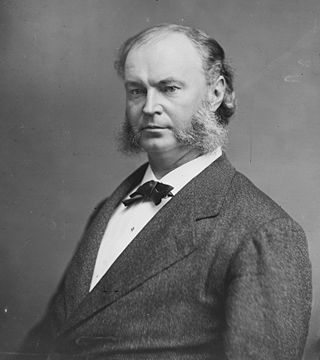
Theodore Fitz Randolph was an American attorney, businessman, and politician who served as the 22nd governor of New Jersey from 1869 to 1872 and represented the state in the United States Senate from 1875 to 1881. He was the son of U.S. Representative James F. Randolph.
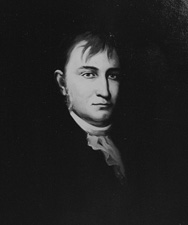
Thomas Buck Reed was a United States senator from Mississippi.
James Lockwood Conger was an American lawyer and politician from the U.S. state of Michigan. From 1851 to 1853, he served one term in the U.S. House of Representatives as a member of the Whig party.
John Test was a U.S. Representative from Indiana.
David Jennings (1787–1834) was a 19th Century American lawyer and politician who served as a United States Representative from Ohio for part of one term from 1825 to 1826.
Thomas Bines was an American politician who served briefly as a U.S. Representative from New Jersey from 1814 to 1815.
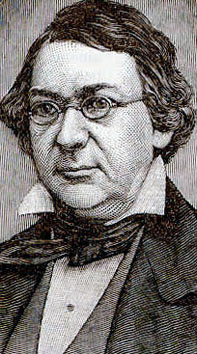
Alexander Cummings McWhorter Pennington, Sr. was an American Whig Party / Opposition Party politician who represented New Jersey's 5th congressional district in the United States House of Representatives from 1853 to 1857.
Hedge Thompson, a Representative from New Jersey. Thompson was born in Salem, New Jersey on January 28, 1780. He graduated from the medical department of the University of Pennsylvania at Philadelphia in 1802 and practiced his profession in Salem; member of the New Jersey General Assembly in 1805; served in the New Jersey Legislative Council in 1819; appointed associate judge of Salem County, N.J., in 1815 and again in 1824; served as collector for Salem County from 1826 to 1828; elected to the Twentieth Congress and served from March 4, 1827, until his death in Salem, N.J., on July 23, 1828; interment in St. John's Protestant Episcopal Churchyard.
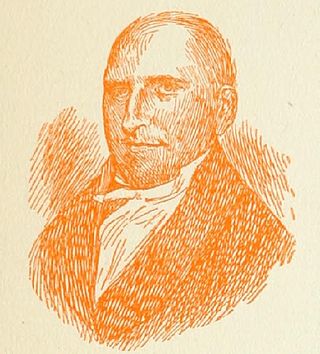
William Sanford Pennington was a United States Attorney for the District of New Jersey, an associate justice of the Supreme Court of New Jersey, the sixth governor of New Jersey and a United States district judge of the United States District Court for the District of New Jersey.
Events from the year 1790 in the United States.
This page is based on this
Wikipedia article Text is available under the
CC BY-SA 4.0 license; additional terms may apply.
Images, videos and audio are available under their respective licenses.












